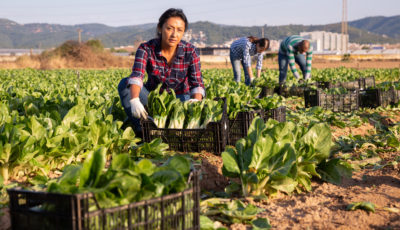 At the beginning of the COVID-19 pandemic, frontline workers were deemed “essential” and hailed as heroes. After all, they were risking their personal health — and the health of members of their household — to keep our society running.
At the beginning of the COVID-19 pandemic, frontline workers were deemed “essential” and hailed as heroes. After all, they were risking their personal health — and the health of members of their household — to keep our society running.
After two years of pandemic disruption amid a push to return to “normalcy,” these formerly “essential” workers are being derided as simply “low-skill workers.”
There is no such thing as a low-skill worker. Every job, no matter what it is, requires a unique set of skills and knowledge. There is no such thing as a low-skill or unskilled worker.
Where the Term Comes From
“Low-skilled/unskilled labor” is a term used by the Bureau of Labor Statistics to categorize work that requires little or no experience or training to do or consists of routine tasks. These positions do not require the workers to have obtained any post-secondary degree or credential.
Workers in this category make up a large proportion of our economy and include the millions of workers we rely on to keep us fed, housed, and healthy — in a pandemic or otherwise. Line cooks, farmworkers, construction workers, and grocery clerks, among others, are all considered “low-skilled labor” according to the BLS. While these jobs have few formal requirements to obtain, do they involve little or no skill to do?
Working as a line cook on a busy night requires concentration, coordination, and impeccable timing. Harvesting grapes by hand all day takes endurance, precision, and efficiency. Calling jobs “low-skill” obscures the particular set of skills required to succeed in them and tacitly justifies the low wages earned by workers in these positions.
Rethinking the Language of Work
It is important to understand the impact of the language we use. Workforce development is full of confusing terminology that obscures the relationship between individuals and the larger systems in which they exist. The term “low-skill worker” is a prime example.
Given the number of confusing and/or damaging terms, combined with the increased media attention on the frontline, low-wage workforce, the National Fund joined a coalition of like-minded organizations seeking to clarify — and in some cases change — the way we talk about workforce development. In 2021, the group released The Words of the Workforce, an overview of key concepts and terms related to workforce development.
“Low-skill worker” erases the skills that all workers bring to their jobs. Furthermore, labeling people “low-skill” puts the burden on the individual to gain “better” skills, rather than on employers or industries to invest in their frontline workforce, improve the quality of their jobs, and provide supports that allow workers to succeed and advance.
The post-pandemic labor market reshuffling has been primarily driven by frontline workers. They are leaving lower-quality jobs for better opportunities, taking with them critical skills, knowledge, and experience that are vital to the success of the business.
Employers are recognizing they need to do more, and many are taking action. Wages are rising, and more workers are receiving benefits. Employers are considering a variety of job design elements to improve the quality of their jobs.
To address workforce issues, we need to separate the worker from the job. This distinction is critical for workforce professionals, employers, and policymakers to understand. As we come out of the pandemic, it is important that we recognize an essential truth about our workforce: All workers have skills.





